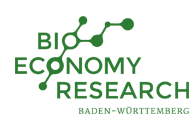Modeling of the global agricultural sector with ESIM (European Simulation Model)
The European Simulation Model (ESIM) is a global partial equilibrium model of the agricultural sector and depicts agricultural production, the demand for agricultural products, and foreign trade. Moreover, it covers processing activities of oil seeds for biodiesel production and of cereals, sugar beet and sugar cane for bioethanol production. It additionally covers use of and foreign trade in biofuels and the production and use of by-products (oil seed cakes, gluten feed) in livestock production. ESIM covers all countries at different levels of detail. It focuses on the Member States of the European Union and accession countries, it includes the USA, and it covers all other countries aggregated as the “Rest of the World”.
In this project ESIM will be used to analyze the impacts of increased biomass demand in the agricultural sector. The aim of this project is to develop data interfaces between ESIM and other simulation models within the competence network in order to analyze integrated scenarios for biomass use. An iterative data exchange will take place between ESIM and the energy system model TIMES PanEU. Changes in demand for biomass for energy use estimated with TIMES PanEU will be implemented into ESIM. ESIM will then provide the resulting changes in biomass prices for TIMES PanEU and the farm model EFEM. It will also provide changes in supply for the material flow model CarboMoG which will analyze environmental impacts. ESIM will implement changes in income and in factor prices derived with the general equilibrium model PACE.
Cooperation with other research focus areas beyond the competence network includes:
In the research area Biogas:
- Biogas: Potential land use changes and climatic effects
- Ecological and economic analysis of cultivation and utilization of both agricultural biomass substrata and lignocellulose-based crops in Baden-Württemberg
In the research area Lignocellulose:
- Lignocelluloses: Land use, potentials, and market effects
- Agro-economic analysis of production processes of lignocellulosic biomass and their acceptance in agriculture in Baden-Württemberg
In the research area Microalgae:
- Microalgae – Potential for relaxing the global biomass balance through the provision of high quality nutritional proteins
| Project title | Modeling the global agricultural sector with the European Simulation Model (ESIM): Development of data interfaces |
| Institution | University of Hohenheim, Institute of Agricultural Policy and Markets (420a) |
| Research group | Prof. Dr. Harald Grethe |
